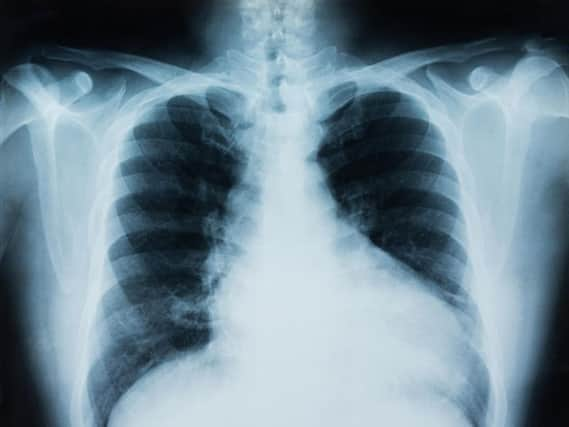Women have caught up with men in terms of lung cancer deaths but WHSCT is among best at treating illness


The study by the Northern Ireland Cancer Registry (NICR) at Queen's University, Belfast, has found the rate of increase in lung cancer among women since 2006 has been more than four times higher (55%) than the increase in men (12%).
Smoking's to blame.
It's down to more men giving up cigarettes and more women taking them up.
Advertisement
Hide AdAdvertisement
Hide AdThe study, which took a snapshot of data predating the establishment of the new cancer centre at Altnagelvin, found the Western Trust was doing better than most other areas in treating the illness.
For example, for Lung Cancer Nurse Specialist (LCNS) assessment rates, only the Western Trust (88%) met the National Lung Cancer Audit (NLCA) target of over 80%.
The lowest levels were for Belfast Trust (28%); NI average was 63% (UK average 78%).
Both the Northern and Western Trusts (each 96%) also achieved the desired NCLA target of over 95% for Performance Status documented; NI average was 79% (UK average 89%).
Advertisement
Hide AdAdvertisement
Hide AdThese statistics refer to the accurate appraisal of lung cancer patients' conditions.
However for patients with advanced lung cancer the NLCA chemotherapy targets of over 60% were met only in the Belfast Trust (64%).
The lowest rate was recorded in the Western Trust (35%); NI average was 47% (UK average 58%).
Dr. Anna Gavin, NICR Director said: “Lung cancer is a devastating disease with poor overall survival and the number of lung cancer cases continues to increase in Northern Ireland.
Advertisement
Hide AdAdvertisement
Hide Ad"The surge in cases can be attributed to risk factors especially historic tobacco use but also the ageing population. The proportion of patients over 80 increased from 12% in 2006 to 17% in this study.
“Twice as many men than women had lung cancer in 1996 but fast-forward twenty years and a similar number of men and women are being diagnosed.
"This is due to more men giving up smoking while conversely, more women are taking up smoking, the major cause of lung cancer.”
Lung cancer is the most common cancer in the developed world and also the most frequent cause of cancer mortality worldwide.
Advertisement
Hide AdAdvertisement
Hide AdDespite the increase in numbers, lung cancer services have demonstrated marked improvements over time, which have been accompanied by an increase in survival.
The most successful treatment for lung cancer is surgical treatment, and while not all patients are suitable for this treatment, surgery increased from 12% in 2006 to 15% in this study.
The report found that while the North fell below the UK average in some areas of lung cancer care including Lung Cancer Nurse Specialist assessment rates and 10% lower than the UK average for chemotherapy targets, the North did score above average in other areas including scans offered to patients and anti-cancer treatment rates.
The report offers a number of recommendations to improve outcomes for patients with lung cancer including the need to invest more in smoking cessation and awareness campaigns to encourage early diagnosis.
Advertisement
Hide AdAdvertisement
Hide AdSally Convery, winner of the 2017 Nurse of the Year, works with lung cancer patients: “It is unfortunate to see an increase in the number of lung cancer patients in Northern Ireland.
"However, we do welcome the report and this launch event, which brings together healthcare professionals and patients offering a unique opportunity to tackle this health issue and to work together to improve outcomes for patients.
“While the prognosis for lung cancer is poor, we are confident that a newly introduced self-management programme with a focus on elements such as dietary advice and peer support, will further improve outcomes.”
Early diagnosis can increase chances of survival. Symptoms include a persistent cough, a sudden change in a cough that you have had for a long time, unexplained weight loss, breathlessness and chest pain.